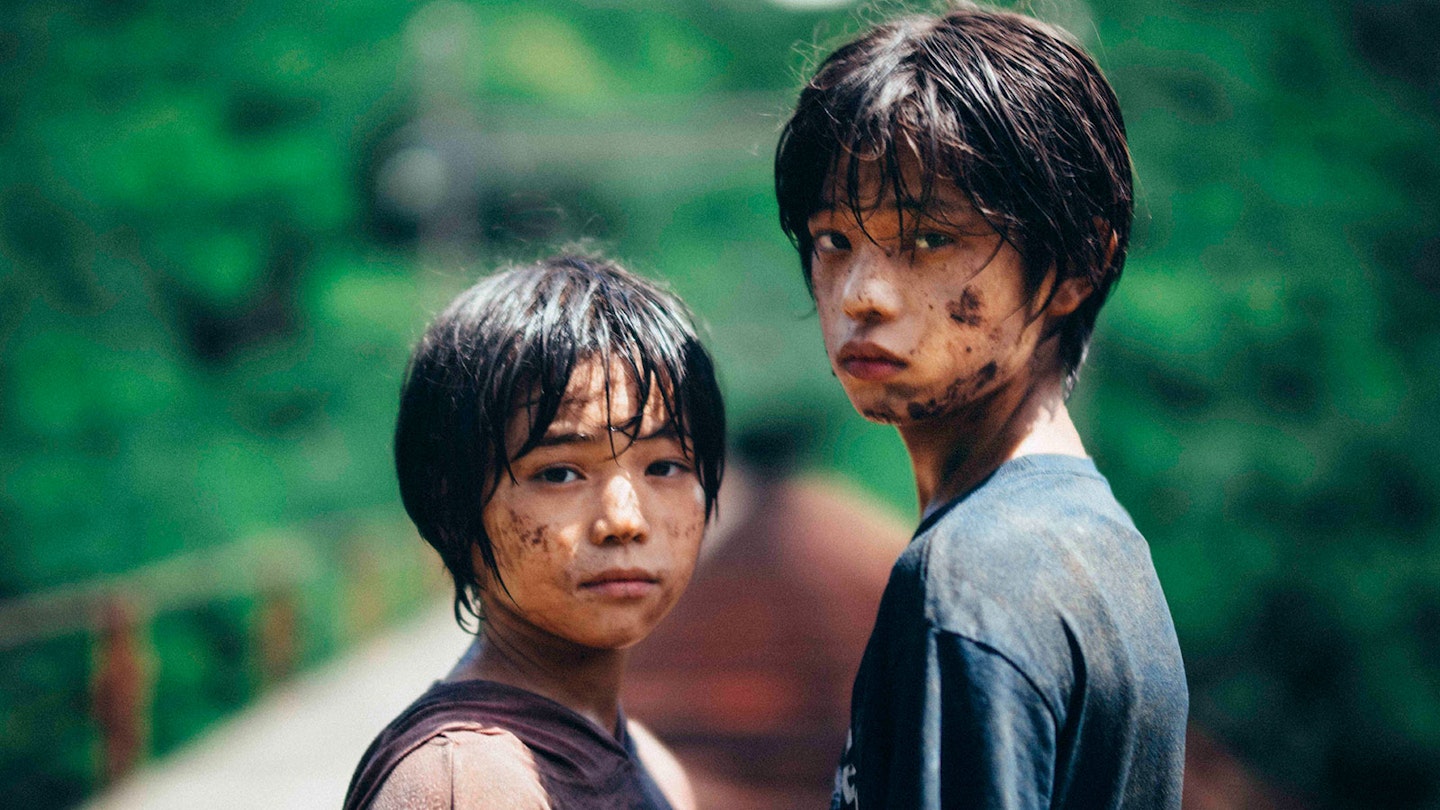Following cinematic adventures in Paris (The Truth) and South Korea (Broker), Hirokazu Kore-eda returns to his homeland of Japan for another round of fractured families, isolation and loss. In essence, Monster is The Towering Inferno meets Rashomon meets Waterloo Road: the director spinning a compassionate tale from the point of view of a parent, then a teacher, then a pupil. It’s sometimes tough to follow but it is shot through with a gentle, generous spirit, lucid filmmaking and terrific performances, confirming Kore-eda as one of the best directors of children working today.

The starting point for each story cycle is a deliberate fire at a hostess bar in a lakeside Japanese town. Who actually started the fire is an overarching mystery that gurgles away beneath the narrative, but Kore-eda locates the story firmly in his delicate-drama wheelhouse. The core of the story starts with 11-year-old Minato (Sōya Kurokawa) confessing to his mother Saori (Sakura Andō) that he has been struck by teacher Mr Hori (Eita Nagayama), rumoured to be a frequenter of the burning knocking shop, and the fallout that follows.
Yet another beautiful meditation on the difficulty in finding happiness
Is the boy lying? Is the teacher a weirdo? All potentialities are given a thorough work-out as Monster plays out the events from different vantage points. Each different rendering deepens your understanding of the characters and, more importantly, makes your sympathies and allegiances slip and slide like a ’90s Essex foam party. The events themselves don’t change, only the perspectives, Kore-eda playing fast and loose with our tendency to always assume the worst.

The director is working from Yuji Sakamoto’s screenplay (the first time he hasn’t written his own for nearly 30 years), but this still feels like a Kore-eda joint. There’s lots of lovely detail on display — a single running shoe resonates more strongly in each version — and, as ever with Kore-eda, the performances are on point. Shoplifters’ Sakura Andō is a force as the mother tearing into teachers she believes are concealing Mr Hori’s bullying, and the film misses her presence when it switches tack. Kurokawa is yet another product of the Kore-eda School Of Child Acting Prodigies, his friendship with Hinata Hiiragi as an androgynous classmate beautifully etched.
It lacks the easy simplicity of the filmmaker’s best work — the structural shenanigans sometimes work against its emotional efficacy — but it’s yet another beautiful meditation on the difficulty in finding happiness. It also gets a cherry on top with Ryuichi Sakamoto’s score (his last), the plaintive, piano-led pieces adding an air of melancholia — the cumulative effect of which is released in the film’s final moments of joy.
